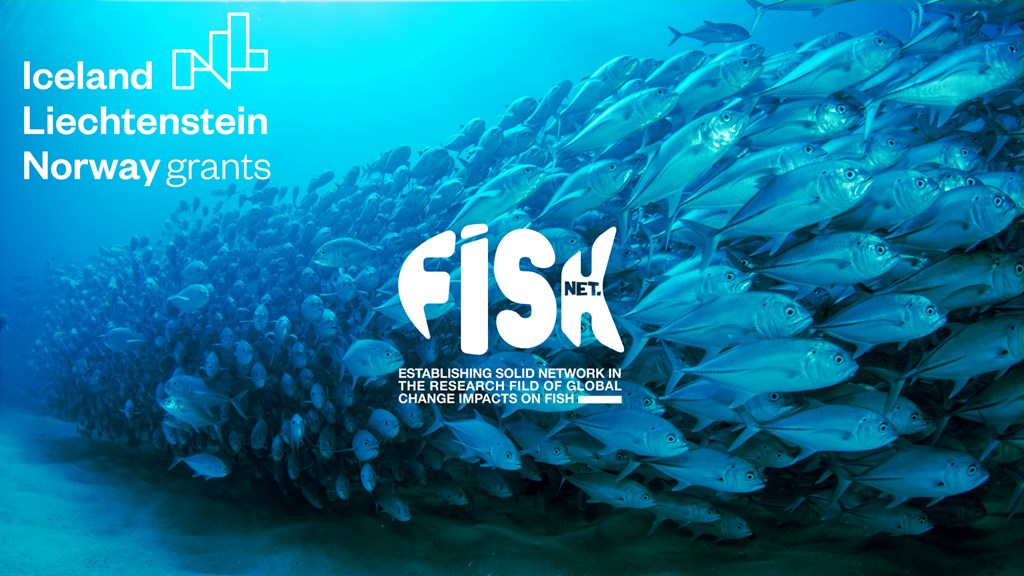FishNet is an initiative financed by the Bilateral Relations Fund of the EEA Grants, and counts with the participation of researchers from MARE-ISPA and MARE-FCUL, in Portugal, and researchers from 3 institutions in Norway, the Marine Research Institute, the Norwegian Institute for Nature Research, and the Norwegian University of Science and Technology.
FishNet aims at establishing a solid network in the research field of global change impacts on fish, through the promotion of the discussion and the exchange of expertise on anthropogenic related stressors, focusing on noise and temperature increase and how they affect fish.
The team has complementary expertise in the fields of fish biology, ecology, behavior, genetics, evolution and global change. They also share an interest in a fish species, the two-spotted goby, Pomatoschistus flavescens, which distributes from Portugal to Norway, in coastal areas highly impacted by anthropogenic pressure. It is a model species that researchers have been studying for some decades, and the fact that it has such a wide distribution allows us to study how different populations respond to different anthropogenic pressures, in order to assess the potential for adaptation to a rapidly changing ocean.
FishNet includes several activities, of which we highlight the following:
- Field trips in Portugal and Norway, to observe the target species, two-spotted goby, and the habitat they occupy. The first field trip took place in September, in Portugal, at the Professor Luiz Saldanha Marine Park (Arrábida) and included the participation of the 5 researchers from Norwegian institutions. We predict that the next field trip will take place in September 2022, in Norway (Bergen).
- Workshop entitled Human Impacts in Fish Biology and Marine Ecosystems. This workshop took place in September, in Lisbon, and had the participation of all members of the initiative and also other colleagues as speakers. The workshop, which took place at IPMA, was open to students and researchers. The program can be found here. As a result of this workshop, the content of the talks will be shared with the participants.
In addition to these activities, FishNet has regular meetings of the entire team in order to exchange experiences, knowledge and plans for future collaborations and joint applications.
